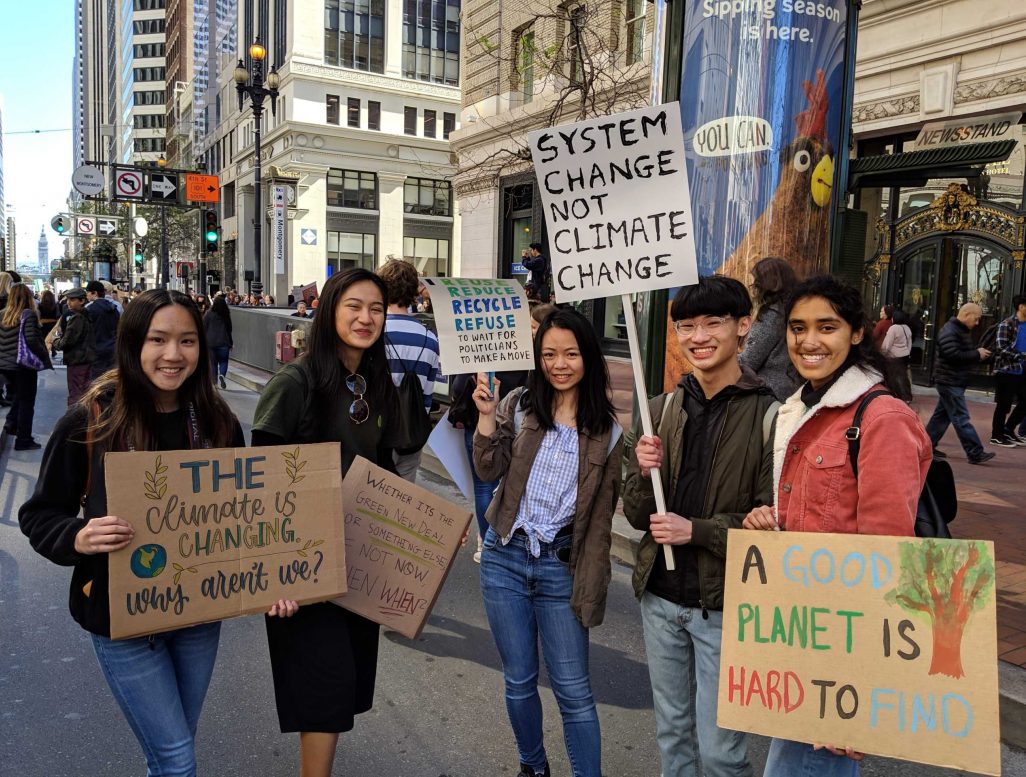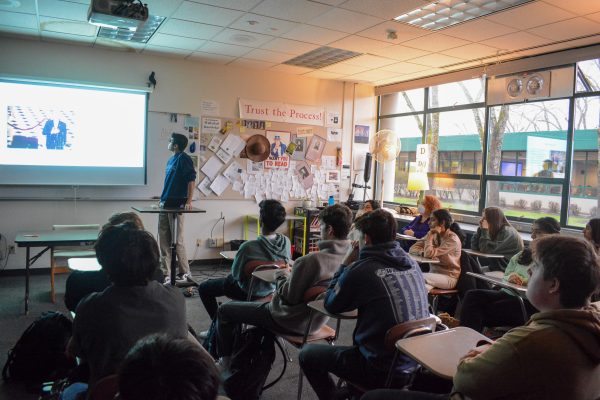The pressure to “fix everything” should not lie on Gen Z
OPINION
The pressure to “fix everything” should not lie on Gen Z
Social pressure upon one of the youngest generations to repair society’s problems is unwarranted– and doesn’t help to solve anything.
Written by Jayla Lowery

Generation Z, or the people born between 1997 and 2010, were recently the subject of an Affinity Magazine article titled “Gen Z is Here, and They Are Going to Fix the World’s Mess.” Affinity’s article continues a trend of calling upon Gen Zers to provide remedies for today’s societal and economic problems.
But is it fair to place such pressures and socialital responsibility upon Gen Zers?
Generation Z is known as the technological generation, and are the first to grow up immersed in technology and the Internet. Gen Zers are known to have gotten their first phone before their 12th birthday. They are found to spend 15.4 hours a week on their phones, as compared to the generation before them, millennials, who are at about 14.8 hours a week (Visioncritical.com).
Gen Zers are the most ethnically diverse generation in US, and make up 27% of the population. Gen Zers were found to get a majority of their news from social media apps like Instagram, Twitter, and Snapchat.
Naturally, social media has transformed the way Gen Z receives news. Due to various social justice-centered accounts and easy-to-share posts, Gen Zers tend to be more socially aware and inclined to activism than their older generation counterparts. Gen Zers tend to be in universal agreement on topics such as climate change and legalized marijuana (BusinessInsider).
This does not necessarily make Gen Zers more liberal; in fact, Gen Z is often found to be split almost evenly between liberal and conservative ideologies. Issues regarding gun rights and immigration are more divisive within the population.
However, conservative Gen Zers are found to promote diversity and are more likely to argue for LGBTQ+ rights than conservatives of older generations (BuisnessInsider.com)
All of the signs point to a revolutionary generation, one that comes as idealized savior of the political and social issues currently plaguing America. It’s easy for older generations to point to Gen Z to right the wrongs the last few decades have created. But does all of this praise result in the stepping back of older generations in attempting to solve these problems as well?
A common narrative often presented is that baby boomers wrecked the economy, and Gen Zers are here to fix it. This story, however, makes it easy for baby boomers to proclaim the younger generations as heroes and avoid the responsibilities of participatory activism.
Millennials and Gen Zers have been steadily increasing their voter participation, jumping from 20% in 2014 to 36% in 2018, a record high for young voters. This number is expected to increase in the following election.
Prominent social activists are shown to be young people. Swedish girl Greta Thunderberg, 16, is one of the world’s most prominent and outspoken environmental activists. After the mass shooting at Stoneman Douglas High School, thousands upon thousands of kids walked out of their schools, the largest event mobilized by teens since the Vietnam War.
The stories of young people’s activism tend to be heavily featured in media, with stories of social media and marches such as the Climate Strike displaying the political action of young people.
But where does this encourage participation and action from baby boomers and Gen Xers? It doesn’t— and that is an issue.
Although there are many effective and famed activists from the boomer and Gen X’s generations, the burying of their stories further the idle attitude held by members of older generations. With such a heavy emphasis on the activism of Gen Zers, older generations are seemingly given a pass to sit back and observe as opposed to participating in social and political activism with their younger counterparts.
Social change doesn’t happen with some people taking the backseat. If baby boomers and Gen X see things they want changed, it takes their voices along with Gen Zers to promote their ideas to the government and beyond.
And, it isn’t hard for this ‘next generation’ attitude to get passed into Gen Z. In the future, Gen Z could easily say they’ve put in their time and pass the responsibility onto the generation after them. And this could go on to the next generation, creating a cycle of passing a torch that will ultimately go nowhere.
Older generations might avoid responsibility for issues of society by placing high expectations on younger generations. If baby boomers wrecked the economy, why not get involved and help fix it? By looking to Gen Z’s to fix older generations mistakes, baby boomers and Gen Xers avoid culpability; and, they imply all change must happen in the future by young people, and not now by people both young and old.
But why does this torch of social change and activism need to be passed? The truth is, it doesn’t. Sure, it may be the easiest thing to do, but it’s the least effective. If baby boomers and Generation X want change, they need to participate as well. The battle for an improved society should not be fought by certain generations alone.
It takes an effort and leadership from the generations before Gen Zers to provide effective change to the problems that need to be fixed. So no, it’s not just Gen Z who is going to “fix the world’s mess”— it must be all generations, together.

Jayla Lowery is a current senior at Jesuit High School. She enjoys biking, reading, swimming, music, daydreaming, watching movies, and writing mediocre short stories and screenplays. Journalism has always interested her and she is excited to learn and write articles for the first time. She is really hoping to write pages focused on social issues and pop culture. She believes these topics deeply connect into Jesuit High School’s environment and culture and is interested in exploring the impacts of those subjects on Jesuit further. Jayla also hopes to write about music and movies and interview the many diverse and unique members of the Jesuit community. She is hoping to hear the perspectives and stories of people from all walks of life that make up the greater Jesuit High School community. She can’t wait to meet and talk to people she would usually never get the opportunity to! Jayla is hoping to studying screenwriting in college and hopes journalism will help her improve her writing skills and also help introduce her up to a new form of writing. She hopes she isn’t too nosy of a journalist and that this year is a very fun and exciting one and can hardly wait to get started!








